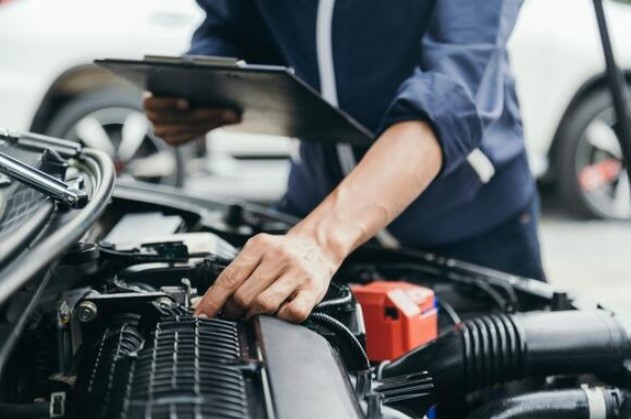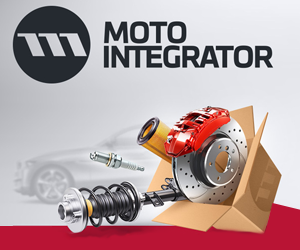
Key Takeaways:
- Understanding standard auto repair services can help car owners maintain their vehicles in top condition.
- Regular maintenance is crucial for extending the lifespan of a car and ensuring safety on the road.
- Being informed about auto repair services can aid in effective communication with mechanics and in making informed decisions.
Table of Contents:
- Introduction to Auto Repair Services
- Oil Change and Engine Maintenance
- Brake Service: The Lifeline of Your Vehicle
- Tire Maintenance for Optimal Performance
- Battery Checks and Replacement
- Cooling System Maintenance
- Transmission Service and Its Importance
- Exhaust System Repair and Emissions
- Suspension and Wheel Alignment
- A/C Repair for Comfort and Safety
- Troubleshooting Electrical Systems
- Proactive Maintenance: The Best Approach
- Finding a Reliable Auto Repair Service
Introduction to Auto Repair Services
For many car owners, their vehicle is more than just a means of transportation; it’s a critical part of daily life. A reliable car is essential, whether it’s the daily commute, a family road trip, or running errands. Understanding essential auto repair services is crucial for every car owner. Knowledge of these services helps in proper vehicle maintenance and ensures that you can identify and address issues early, possibly avoiding more expensive repairs.
With its extensive information on necessary auto maintenance services, this comprehensive handbook seeks to empower and educate drivers. Although taking your vehicle to a trusted professional for auto repair Apopka FL, or wherever you may be located, is recommended for most services, knowing what to ask for and when can save time and money.
Oil Change and Engine Maintenance
One essential service for maintaining your engine’s health is an oil change. Over time, engine oil breaks down and becomes less effective at lubricating engine components, cleaning the engine, and dissipating heat. Frequent oil changes keep the engine operating smoothly and prevent overheating and excessive wear. Regular oil changes should be performed every 3,000 to 5,000 miles, depending on the kind of oil and vehicle.
Other engine maintenance services include:
- Replacing spark plugs and air filters.
- Checking and topping off other fluid levels.
- Inspecting belts and hoses for signs of wear.
These routine services are fundamental to extending your vehicle’s life and running efficiently.
Brake Service: The Lifeline of Your Vehicle
No other system in your vehicle plays a more vital role in ensuring your safety than your brakes. In addition to guaranteeing that your brakes are functioning correctly, routine brake inspections and maintenance—such as changing braking fluid, resurfacing or replacing rotors, and replacing brake pads—can help avert more expensive repairs that may arise from neglecting the system.
Hearing strange noises when you brake or feeling a pulsating sensation can indicate brake wear or other issues. A professional service technician can assess and resolve these concerns, ensuring your vehicle is safe to drive.
Tire Maintenance for Optimal Performance
Tires are your contact point with the road, and their upkeep is essential for handling, fuel efficiency, and safety. Essential tire services include regular rotations, balancing, and alignment checks. These help evenly distribute tire wear and maintain proper vehicle handling.
Additionally, tire pressure should be checked monthly; inflation is critical to tire longevity and safety. Be sure also to have your tires inspected periodically for tread depth and signs of damage, as worn tires can significantly affect your vehicle’s performance and safety.
Battery Checks and Replacement
Your car battery is your vehicle’s powerhouse; without it, your car won’t start. Excessively high or low temperatures can impact a battery’s longevity and performance. Frequent inspections can identify any problems before they become severe enough to cause a breakdown, especially before significant seasonal changes.
The battery’s terminals should also be inspected to ensure they are clean and secure, as corrosion and loose connections can cause starting problems. Most batteries have a lifespan of three to five years; don’t wait until it fails to replace it.
Cooling System Maintenance
The cooling system prevents your vehicle’s engine from overheating, crucial in avoiding engine damage. Routine checks, including the radiator, coolant levels, thermostat, fans, and water pump, can ensure the system functions correctly. Regular coolant flushes and replacements can help extend the life of your cooling system and prevent corrosion and blockages within the engine.
Transmission Service and Its Importance
Your transmission is responsible for transferring power from the engine to the wheels. It’s complex and can be costly to repair or replace. Regularly servicing your transmission by changing the fluid and filter, per your vehicle manufacturer’s recommendations, will help maintain its performance and longevity. Any changes in shifting patterns or unusual noises should be evaluated by a professional as soon as they are noticed.
Exhaust System Repair and Emissions
The exhaust system not only reduces noise from the engine but also helps control emissions. A leak or blockage in the exhaust system can lead to decreased performance and increased emissions, and in some cases, harmful gases can enter the vehicle cabin, posing a health risk. An exhaust inspection can identify any potential problems that may need repair.
Suspension and Wheel Alignment
Your vehicle’s suspension system affects the comfort of your ride and the wear on your tires. If your car drifts to one side or the steering seems unstable, it may be time for an alignment check. Regular wheel alignments and suspension inspections ensure your ride is smooth and your tires wear evenly.
A/C Repair for Comfort and Safety
In many climates, properly functioning air conditioning is more than just a comfort; it’s a safety necessity, especially during the summer heat. If your A/C is blowing warm air or you notice a musty smell, these could be signs that the system needs service or repair. A technician can check for leaks, recharge the refrigerant, or replace the filter to restore full functionality to your system.
Troubleshooting Electrical Systems
Modern cars are complex networks of computers and electronic components. If you experience issues with your vehicle’s lights, audio system, onboard computers, or any other electrical components, it may be due to an electrical problem. Diagnosis and repair of electrical issues typically require the expertise of a skilled technician.
Proactive Maintenance: The Best Approach
Being reactive when issues arise can lead to more significant expense and inconvenience. Proactive maintenance, however, involves adhering to a regular maintenance schedule and addressing minor issues before they become substantial problems. This approach can help extend the life of your car, maintain its performance, and ensure your safety on the road.
Finding a Reliable Auto Repair Service
Finding an auto repair service you can trust is vital. Look for certified mechanics, ask for referrals from friends or family, check online reviews, and ensure they provide a clear and detailed explanation of any issues and required services. A reliable service provider will make you feel confident in the care your vehicle is receiving.
Understanding these essential auto repair services can help ensure your car remains safe, efficient, and reliable. Keep this guide as a reference, and consult a trusted mechanic for the best care for your vehicle. Regular maintenance is the key to longevity and performance, so be proactive and keep your car in top condition.






More Stories
Missouri couple left waiting days to get car back from mechanic
Diagnostic Network Launches New Module Swap System to Enhance Reprogramming Knowledge Among Members
Blackcreek Diesel strives to maintain customer satisfaction at long-time Emporia repair shop | Gaz